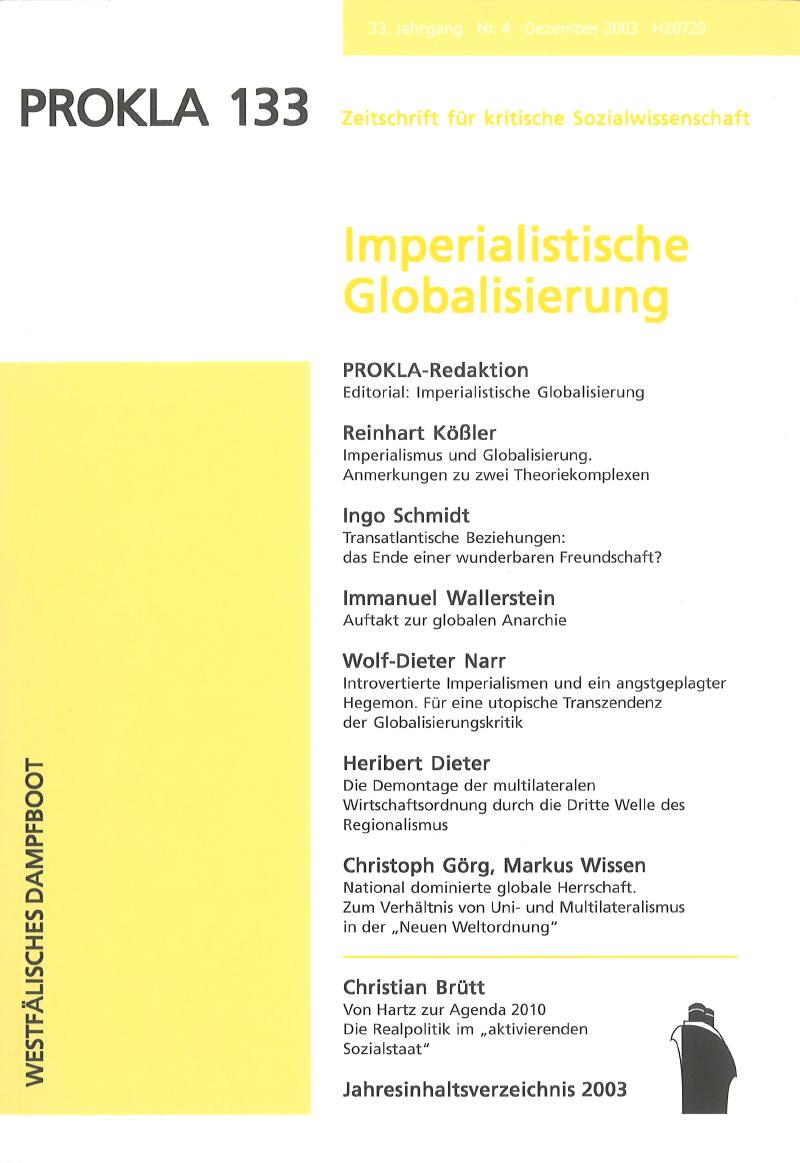National dominierte globale Herrschaft
Zum Verhältnis von Uni- und Multilateralismus in der "Neuen Weltordnung"
DOI:
https://doi.org/10.32387/prokla.v33i133.654Schlagwörter:
Globalisierung, Herrschaft, Global Governance, Multilateralismus, Unilateralismus, Nationalstaat, InternationalisierungAbstract
Current interpretation about an end of multilateralism and of neoliberalist globalisation at all lacks a sufficient understanding of international institutions. Neither was multilateralism in the 1990ties a functional problem-solving approach to global crises nor can the growing tendencies toward unilateralism today renounce the background of multilateral institutions. Both interpretations miss the specific character of global domination incorporated in international institutions. Building on the state theory of Nicos Poulantzas and the diagnosis of Joachim Hirsch towards an "Internationalisation of the state" an alternative approach is developed arguing that international institutions are "second order condensations" of social power relations. The case of the WTO-TRIPsagreement and the global conflicts around its revision is used to show the analytical strength of this approach.





